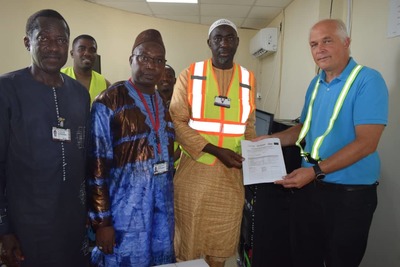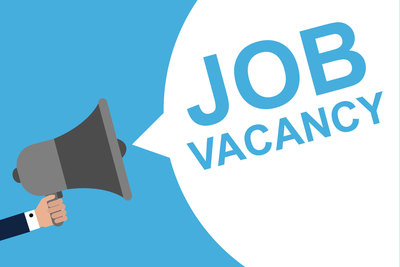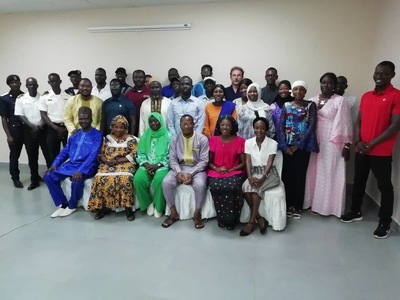National Level
- National Environment Agency (NEA):
- Natural Resources Working Group, under the National Environment Agency (NEA) deals with the joint administration of fisheries and other natural resources.
- NAAFO supports the government's efforts in stock management, the organization of associations of fishermen and strengthening the capacities of their members.
- GAMFIDA NGO is in charge of advocacy, training, information, education and communication for the sustainable management of fisheries resources.
- Food Safety and Quality Authority (FSQA): Collaborative agreement with FSQA on quality control of fish and fisheries products as well as expert advice on issuance of export permits.
- Gambia Navy: Collaborative agreement with Gambia Navy on illegal, Unreported and unregulated (IUU) fishing patrol.
- Gambia Maritime Agency (GMA): Collaborative agreement with the Gambia Maritime Agency (GMA), for the inspection of fishing vessels and issuance of sea safety certificate.
- Other partners include Sub-Regional Fisheries Commission (SRFC) and the international Whaling Commission (IWC)
International Level
Fisheries management is contextualized in a global environment of international instruments and conventions, such as, but not limited to, UNCLOS, UNFSA, CCRF and PSMA. The Gambia is one of the founding members of the Economic Community of West African States (ECOWAS) and Sub-Region Fisheries Commission (SRFC). Apart from being a member of FAO of UN, CECAF and ATLAFCO it is also a signatory to several international conventions such, the Convention on Biodiversity, International Union for the Conservation of Nature, and United Nations Convention on Law of the Sea etc. This fisheries policy framework is aligned with international fisheries principles. For example, this policy framework takes into account provisions of AU’s PFRS and other global instruments such as FAO-CCRF; UN Sustainable development goals - to ensure coherence and consistency. Also, the International Whaling Commission (IWC).


